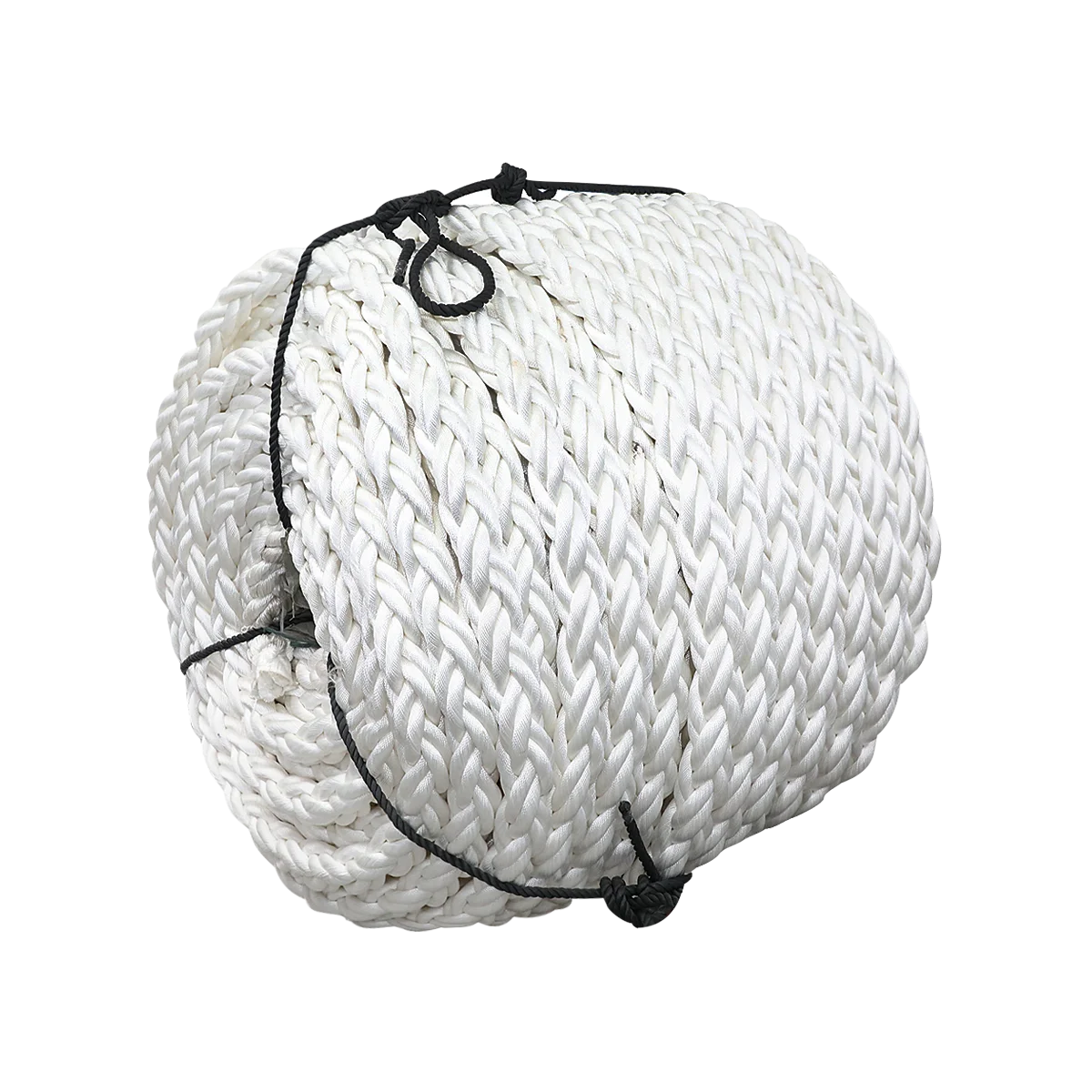Oikeat kemialliset materiaalit veneen kiinnitysköysiin
Meren kiinnitysköydet ovat välttämättömiä veneiden ja laivojen turvallisuuden ylläpitämiseksi, mikä auttaa niitä kiinnittymään sekä lepääessään että liikkuessaan. Koska sitä käytetään ympäristössä, joka on niin ankara ja kova ja suurin osa työstä keskittyy altistumiseen suolavedelle, johon vaikuttavat edelleen voimakkaat tuulet ja myrskyt, on tärkeää valita materiaali, joka kestää tämän koettelemuksen ja takaa luotettavuuden. Tässä perehdymme syvemmälle näiden kemiallisten materiaalien viiteen parhaaseen, joita suositellaan käytettäväksi veneen kiinnitysköydessä:
Nylon
Yksi houkuttelevista tyypeistä on nylon (laadunsa ansiosta kevyt mutta vahva). Tämä erityinen nimien verkostoituminen, joka on peräisin kahdelta tärkeimmältä merkkivalmistajalta, varmistaa, että nailonköydet ovat hieman kompaktimpia ja taipuisampia kuin mikään muu köys, mutta myös erittäin tuottava. Lisäksi nailon on kovaa ja kestävää UV-säteitä, hankausta/kemiallista hajoamista, jotka ovat niin yleisiä meriympäristöissä. Sillä on suhteellisen korkea venymä, joka mahdollistaa sen venymisen iskukuormituksen alaisena, mikä vähentää sekä veneen että kiinnitysjärjestelmän rasitusta.
Polyesteri
Polyesteri on myös hyvä vaihtoehto laivojen kiinnitysköysien tapauksessa, varsinkin koska sillä on erinomaiset UV-kestävyysominaisuudet. Tämä on ominaisuus, joka tekee polyesteriköydistä täydelliset käytettäväksi alueilla, jotka saavat eniten auringonsäteitä. Polyesterillä on myös alhainen venytys ja korkea lujuus - joten ihanteellinen sovelluksiin, joissa halutaan vain vähän venymistä.
polypropeeni
Pienten veneiden ja huvialusten kiinnitysköydet valmistetaan usein polypropeenista, edullisesta kestomuovista. Vaikka polypropeeni tunnetaan kohtalaisesta venymisestään, sen UV-kestävyys oli huono ja se hajoaa hyvin nopeasti altistuessaan auringonvalolle, ja monet kemikaalit ovat vaarallisia. Polypropeeniköydet on tarkastettava ja vaihdettava säännöllisesti.
Korkean suorituskyvyn synteettistä kuitua sitä vastoin käytetään yleisesti erilaisissa teollisuuden ja merisektorin sovelluksissa. Sen erinomainen lujuus-painosuhde tarjoaa ihanteelliset kiinnitysköydet, jotka ovat sekä vahvoja että kevyitä. Sen kestävyys ultraviolettiauringonvaloa, kemikaaleja ja hankausta vastaan vahvistaa entisestään työllisyyttä merikentillä. Lisäksi pienen venymisensä ansiosta se säilyttää muoto- ja jäykkyysominaisuudet pitkällä aikavälillä.
Seuraava on hyvin samanlainen tuote kuin toinen, lujuus-painosuhteeltaan ja kestävyydeltään. Sillä on vastaava apuväline köysien kiinnittämiseen laivoille, jotka käyttävät sitä usein näiden ominaisuuksien vuoksi. Sillä on korkea kimmokerroin, mikä tarkoittaa, että se soveltuu hyvin kestämään paljon painoa ilman muodonmuutosta tai venymistä. Sen erinomainen UV-kestävyys, kulutuskestävyys ja kemiallinen yhteensopivuus tekevät siitä sopivan meriympäristöön.
Kun valitset oikeaa materiaalia veneen kiinnitysköyteen, sinun tulee ottaa huomioon, minkä tyyppistä venettä se käyttää ja kuinka paljon kuormaa suunnitellaan - tämä tietysti auttaa valitsemaan jotain, joka sopii parhaiten ympäristöolosuhteista huolimatta. . Pieni vene suojaisilla vesillä pärjää todennäköisesti yksinkertaisella polypropeeniköydellä, kun taas on erittäin suositeltavaa käyttää tämän kaltaisia tehokkaita köysiä, ei vain suurempia jahdeja varten, vaan myös niille, jotka purjehtivat paljaissa paikoissa. Sen lisäksi, että kiinnitysköydelle valitaan laadukkaat materiaalit, se on myös testattava tiukasti alan standardien mukaisesti ja tarkastettava säännöllisesti.
Koska laivojen kiinnitysköydillä on erilaisia tehtäviä, mukaan lukien kiinnitys, ankkurointi tai hinaus, ja jokaiseen tarkoitukseen tarvitaan tietty köysityyppi, joka liittyy käytettyihin materiaaleihin. Telakkaköysien tulee olla joustavia ja helppoja käsitellä, kun taas ankkuriköysi tarvitsee lujuutta ja kulutuskestävyyttä. Tuglineilla on oltava korkea joustavuus ja lujuus, mikä antaa kyvyn vaimentaa iskukuormituksia ja suojaa siten sotkeutuneita suonia.
Viime vuosien aikana tälle alalle tarjottujen kiinnitysköysien materiaaleissa ja myös teknologisessa kehityksessä on tapahtunut dramaattista kehitystä. Tämän seurauksena hybridiköydet, joissa hyödynnetään erilaisia materiaaleja ja ominaisuuksia, on suunniteltu parantamaan yleistä suorituskykyä näillä lujuuden ja kestävyyden kriittisillä alueilla. Samoin kehitetään teknologioita, kuten tekoälyä ja antureita, jotka tarkistavat kiinnitysköysien kunnon havaitsemalla kiireellisesti epäsäännöllisyydet tai puutteet.
Luotettavan kiinnitysköyden toimittajan tulee pystyä tarjoamaan huippuluokan asiakaspalvelua, mukaan lukien tekninen tuki ja räätälöidyt ratkaisut sekä nopeat toimitukset. Näin ollen, kun valitset hyvämaineisen palveluntarjoajan, jolla on riittävä takuu- ja palautuskäytäntö sekä paikan päällä tapahtuva asennus ja huolto, varmistat vaivattoman kokemuksen.
Lopulta oikean materiaalin valitseminen auttaa sinua varmistamaan veneen kiinnitysköyden turvallisuuden, suorituskyvyn ja luotettavuuden. Alla on parhaat kemialliset materiaalit, joita suositellaan laivojen kiinnitysköysiin, mukaan lukien nailon, polyesteripolypropeeni ja kaksi muuta. Puhuminen meidän kaltaisen kiinnitysköysien toimittajan kanssa ja varmistamalla, että noudatat alan standardeja ja parhaita käytäntöjä, on joitain muita osia, jotka tulisi tehdä, jotta veneen kiinnitysköydet saadaan mahdollisimman tehokkaasti käyttöön.
 EN
EN AR
AR BG
BG HR
HR CS
CS DA
DA NL
NL FI
FI FR
FR DE
DE EL
EL HI
HI IT
IT JA
JA KO
KO EI
EI PL
PL PT
PT RO
RO RU
RU ES
ES SV
SV CA
CA TL
TL IW
IW ID
ID LV
LV LT
LT SR
SR SK
SK SL
SL UK
UK VI
VI HU
HU TH
TH TR
TR AF
AF MS
MS GA
GA CY
CY

